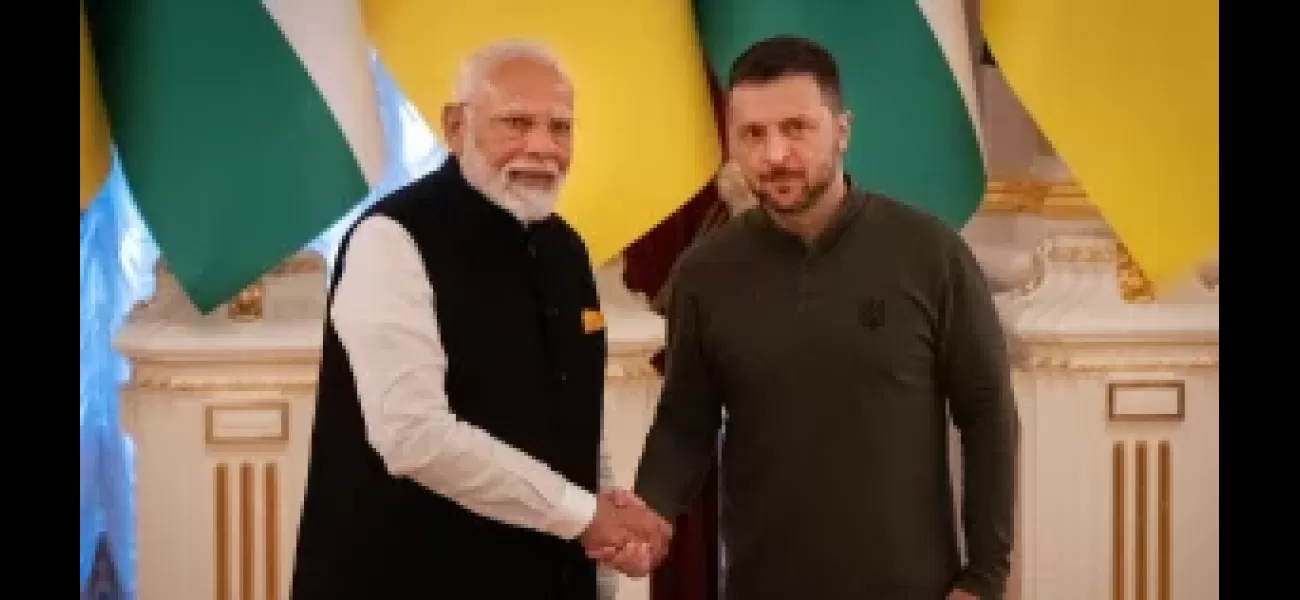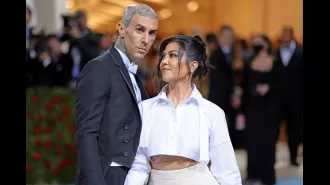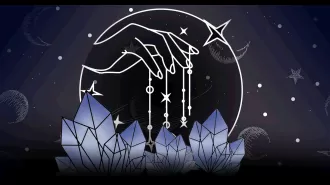The issue of staying neutral and not taking sides on a matter is a dilemma. Dilemma of remaining impartial and not picking a side.
PM Modi's visit to Ukraine, after his recent visit to Russia, received criticism from the US-led West for being seen as a balancing act.
August 26th 2024.

Prime Minister Narendra Modi recently paid a visit to Ukraine, just six weeks after his trip to Russia. However, his decision to do so faced criticism from certain quarters in the US-led West. Many view this visit as an attempt to balance India's relationships with both Russia and the West. This nine-hour tour was the first by an Indian Prime Minister since Ukraine's independence in 1991. It comes at a crucial time when the country is fighting against Russian aggression, with the conflict now reaching a 30-month milestone and the tide seemingly turning in favor of Kyiv. The timing of this visit, as well as Modi's previous trip to Moscow, couldn't have been worse. During his visit to Russia, a horrific Russian attack on a children's hospital in Kyiv resulted in multiple casualties. And now, Modi's visit to Ukraine coincides with the country's surprise offensive in the Kursk region of Russia. Military experts consider this to be a significant turning point in the ongoing war.
Some see Modi's visit as an attempt to do damage control. India has stood by Russia throughout the conflict, whether it's through abstaining from voting on UN resolutions condemning Russian aggression or continuing to purchase Russian oil and weapons despite Western sanctions. In his speech in Kyiv, Modi emphasized India's commitment to respecting sovereignty and territorial integrity, but it seemed like mere diplomatic talk. He also reiterated his advice to Russian President Vladimir Putin that "now is not the time for war." However, Putin has disregarded this advice, as evident from Russia's continued aggression. It's highly unlikely that India will play any role in any future peace negotiations between the warring countries. This was made clear by Ukrainian President Volodymyr Zelenskyy, who suggested that India could host a Global Peace Summit. However, he also pointed out that India did not sign the communiqué from the last peace summit held in Switzerland in June. India's policy of non-alignment, which dates back to Pandit Jawaharlal Nehru's era, may have been appropriate at the time, but things have changed now. In today's world, being neutral means not getting support from either side. As the saying goes, "someone trying to be everyone's friend is no one's friend." Furthermore, it's uncertain whether India would receive help from either the US or Russia in the event of a conflict with China.
Apart from geopolitical considerations, there's also an ethical aspect to India's neutrality. As the famous anti-apartheid and rights activist Desmond Tutu once said, "if you stay neutral in situations of injustice, you have chosen the side of the oppressor." In other words, by not taking a stand against aggression and injustice, one becomes complicit in it. It's time for India to reevaluate its policy of non-alignment and take a firm stance on issues that matter to the global community. As a major world power and the world's largest democracy, India has a moral responsibility to uphold peace and justice, not just for its own interests but for the greater good of humanity. Only then can India truly be a friend to all nations.
Some see Modi's visit as an attempt to do damage control. India has stood by Russia throughout the conflict, whether it's through abstaining from voting on UN resolutions condemning Russian aggression or continuing to purchase Russian oil and weapons despite Western sanctions. In his speech in Kyiv, Modi emphasized India's commitment to respecting sovereignty and territorial integrity, but it seemed like mere diplomatic talk. He also reiterated his advice to Russian President Vladimir Putin that "now is not the time for war." However, Putin has disregarded this advice, as evident from Russia's continued aggression. It's highly unlikely that India will play any role in any future peace negotiations between the warring countries. This was made clear by Ukrainian President Volodymyr Zelenskyy, who suggested that India could host a Global Peace Summit. However, he also pointed out that India did not sign the communiqué from the last peace summit held in Switzerland in June. India's policy of non-alignment, which dates back to Pandit Jawaharlal Nehru's era, may have been appropriate at the time, but things have changed now. In today's world, being neutral means not getting support from either side. As the saying goes, "someone trying to be everyone's friend is no one's friend." Furthermore, it's uncertain whether India would receive help from either the US or Russia in the event of a conflict with China.
Apart from geopolitical considerations, there's also an ethical aspect to India's neutrality. As the famous anti-apartheid and rights activist Desmond Tutu once said, "if you stay neutral in situations of injustice, you have chosen the side of the oppressor." In other words, by not taking a stand against aggression and injustice, one becomes complicit in it. It's time for India to reevaluate its policy of non-alignment and take a firm stance on issues that matter to the global community. As a major world power and the world's largest democracy, India has a moral responsibility to uphold peace and justice, not just for its own interests but for the greater good of humanity. Only then can India truly be a friend to all nations.
[This article has been trending online recently and has been generated with AI. Your feed is customized.]
[Generative AI is experimental.]
0
0
Submit Comment





